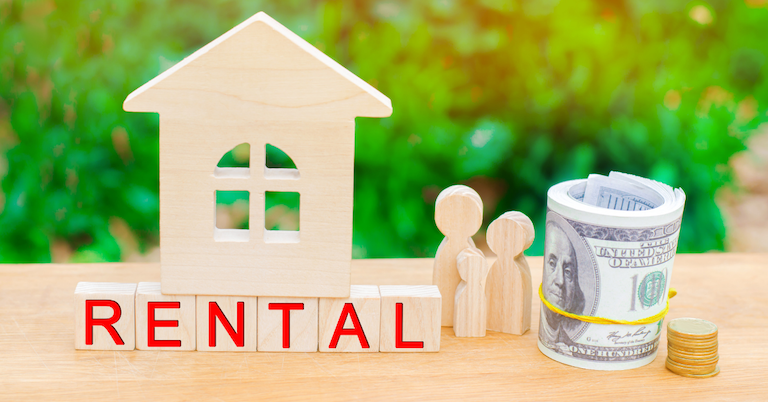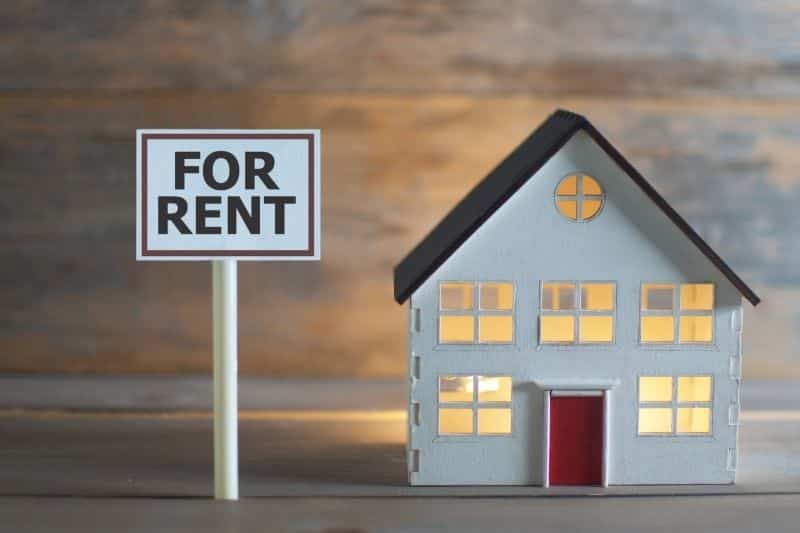Best way to get a Mortgage for Investment Properties over $3,000,000
October 4, 2022Investment Property Mortgage Rates
October 5, 2022- Are You Ready to Invest in Rental Properties?
- How to Apply for a Rental Property Mortgage
- How to keep rental property mortgage rates low
- How to Measure Rental Property Performance
- Mortgage for Rental Property Options
- Rental Property Mortgage Rules
- Rental Property Operating Expenses to Remember
- Requirements for Getting a Mortgage For A Rental Property
- Though?
- What About Financing a Rental Property
- Where to Get Investment Property Loans for Rentals

A growing number of people in the U.S. are looking at investment properties as the best way to boost their incomes because they prove to be excellent sources of income for ambitious investors. But first-time owners have discovered that buying a rental property is far trickier than anticipated. This is especially true regarding eligibility for that crucial supplementary mortgage, the mortgage for a rental property.
A primary dwelling and a rental property are not financed similarly. First-time purchasers should be prepared to meet some rather strict standards before they can expect to be approved for a mortgage because lenders tend to be more cautious about underwriting loans on rental properties.
Even though it sounds complex, it simply requires comprehension. In this article, we’ll explain how you can get a mortgage for a rental property, the options available, the requirements for obtaining one, and the additional requirements that lenders will need borrowers to meet to get a mortgage for a rental property.
Requirements for Getting a Mortgage For A Rental Property
Now might be a fantastic moment to buy rental property if you’ve ever considered doing so. The fact that mortgage rates are still historically low and that rental income can provide essential security against lingering economic instability makes the investment property market a gold wellspring to mine from. Additionally, since the previous year was expected to see a spike in foreclosures, more people might be looking for rental properties.
What About Financing a Rental Property, Though?
Most people will find that getting a mortgage, just as when buying their own home, is the best solution. In addition, a mortgage is the safest way to finance a rental acquisition, whether you intend to live there or not, as the house guarantees it.
It might be a good idea to become a landlord right now. Although current economic instability has made many prospective homebuyers hesitate to take out a mortgage, rental income may be a fantastic method to protect your finances against future volatility. Mortgage rates have been hanging close to historic lows. Find out what’s necessary to acquire financing before you decide to own a rental property and increase your monthly expenses.
Although there may be financial benefits, it is still believed that becoming a landlord is not an easy task. Managing a second mortgage payment on top of your first mortgage may be necessary to finance a rental property.
Additionally, rental income isn’t always reliable. Because of this, lenders will demand that you satisfy specific requirements before qualifying you for a mortgage. So, look at those qualifications more closely if you are planning to get a mortgage for your rental property:
- DTI: Your debt-to-income ratio is a crucial factor that lenders also consider. This gauges how much your gross monthly income is spent on debt repayment. Borrowers can frequently use 75% of their projected monthly rental income as additional eligible income to aid in lowering their DTI. Your DTI should ideally be between 36% and 45% to be approved for a mortgage for rental property.
- Lenders don’t consider potential vacancies when calculating rental income at 100%. However, if you don’t have a history as a landlord, your lender can’t take potential rental income into account. If so, your ability to obtain a mortgage for a rental property may be based on your income.
- Credit score: When financing a rental property, lenders often want a minimum credit score of 620. However, to acquire the best interest rates and conditions, you need to have a credit score of 740 or better, which is regarded as being in the “very good” category.
- Savings: You must show that you have enough money in the bank to address financial problems and that your revenue is sufficient in relation to your debt obligations. It’s an excellent idea to have three to six months’ worth of savings, which should include the whole mortgage payment with principal, interest, taxes, and insurance in a liquid bank account.
- Down payment: Depending on the lender and loan program, putting down as little as 3% for a conventional mortgage on a primary house is feasible. However, if your down payment is less than 20%, you will have to pay private mortgage insurance, which guards the lender against some financial loss if you default on the loan. However, mortgages for rental or investment homes are not subject to PMI. As a result, if you want to finance a rental property, you will probably need to put down a bigger down payment of at least 15% to 20%. Some properties, including multi-unit investment buildings, demand a down payment of at least 25%.

How to Apply for a Rental Property Mortgage
So far, the processes in the mortgage application process have been the same, whether for a primary residence or an investment property. For example, the buyer must meet specific requirements, the property must be valued, the title must be investigated, and the financing must be underwritten.
Generally speaking, you’ll need a credit score of at least 620 and a debt-to-income (DTI) ratio of between 35% and 45%. But you’ll also need to prove that you have enough money to pay both the mortgage on the rental property and your other monthly commitments. One distinction for investment property mortgages is that the buyer’s anticipated rental income may occasionally be considered when determining eligibility if the buyer intends to make money from the property through rental.
An appraiser can make a rented revenue schedule to illustrate how much a property typically rents. The lender can then factor in your predicted rental revenue when calculating your income, which could help you qualify for better terms and lower your payment.
Many lenders need additional processes and documents during the mortgage application process for an investment property. For instance, banks are more inclined to see real estate investors as commercial customers, necessitating the establishment’s involvement in a commercial loan transaction. The documentation requirements for commercial loans differ significantly from those of a mortgage on one’s own residence. For loans involving the financing of rental properties, commercial borrowers are required to provide:
- Tax returns for the last three years (usually two years for residential mortgages);
- Current personal financial statements and tax returns of any principal owners and;
- Copies of the current and projected rent rolls.
- Financial statements for the last three years;
- Financial projections for the next 12 months;
After meeting the requirements for your rental property mortgage, it’s important for you to also know the important rental property options that are available.
Mortgage for Rental Property Options
An investment property often has the same financing choices as a primary residence. This comprises traditional mortgages with fixed or adjustable rates and repayment periods ranging from ten to thirty years. However, the Federal Housing Administration, Veterans Affairs, and U.S. Department of Agriculture, loans that support low-income borrowers, veterans, current military personnel, and rural housing purchases are not available for rental properties. The only exception is if you’re buying a house with multiple apartments and intend to live in one of them.
You can obtain an FHA loan for rental properties with up to four units. However, one of the apartments must be occupied by you for at least a year before you can vacate and rent it out. Additionally, you may be able to fulfill more lenient borrower requirements with an FHA mortgage, such as a lower credit score and down payment.
As long as you reside in one of the units, V.A. loans are also accessible for rental properties with up to four units. Although some lenders may have eligibility restrictions that must be met, these loans do not demand a down payment or a credit score. In addition, there are several alternatives to conventional mortgage finance. For instance, you may utilize a home equity loan or line of credit, which typically allows you to borrow up to 80% of the value of your current house, to finance the acquisition of a rental property. A private loan, which a person or group of investors provides, is another option.

Are You Ready to Invest in Rental Properties?
Yeah, all the requirements are overwhelming, and so are the processes, but even after meeting them, you need to ask yourself if you are ready to dabble in the rental business. It’s crucial to thoroughly assess whether being a landlord is the best course of action before signing on the dotted line. Owning a rental property may be a financially rewarding experience and an excellent method to create income and long-term wealth.
Owning investment property is also very tax-advantageous in the U.S., with the IRS offering deductions for depreciation and costs. In addition, as long as the revenues are invested in a “like-kind” investment, it is also possible to postpone taxes on the sale of the investment property (generally another property).
Likewise, becoming a landlord can bring extra expenses and hassles, including repairs, maintenance, and problematic tenants. However, you can outsource these problems to a property management business for an additional fee, which may or may not be cost-effective if you don’t want to handle them yourself.
Landlords had unforeseen hardships due to the coronavirus pandemic, including a ban on evicting unpaid tenants. The eviction ban pushed some landlords, especially those who relied on rent as their only source of revenue, into either covering their operational costs out of their own pockets or adopting more extreme alternatives, such as selling their properties.
Of course, the impacts of the pandemic on the dynamics of the rental market were unexpected and unforeseeable. However, any potential landlord should investigate the tenant laws that apply to a rental property and ensure they know their rights and obligations before accepting a loan.
Getting a mortgage for a rental property that generates money could be a wise choice, especially at the time, even if it requires more paperwork and documentation. Although having a passive income stream from a rental property may be alluring in times of economic uncertainty, low mortgage rates also make purchasing real estate more affordable.
If the subject property has a healthy cash flow and is in a desirable location. This can be a wise long-term investment. Over the past 50 years, median rents have steadily increased, providing rental property owners with a healthy income stream. The cheap credit rates attract a wide variety of real estate investors, but rental properties are one of the safer bets.
Where to Get Investment Property Loans for Rentals
In need of a business loan to construct or develop real estate? Or perhaps you plan to sell or rent? Consult with Aurum and Sharpe to discuss your possibilities. Our team of real estate specialists is on hand to assist. Suppose your company sees rapid development. In that case, taking a closer look at the possible benefits of our specialized advice, data, and products may be worthwhile. Specialized assistance is available no matter where you want to go for firms that are just starting but proliferating, more established businesses that are increasing, or those wishing to scale.
How to keep rental property mortgage rates low
There are various ways to keep rates and fees low, even if loans for rental property might be more expensive than loans for a permanent dwelling. Some of those ways include:
- Keep your credit score high, preferably at least 740.
- For a lower LTV, put down a larger down payment between 20% and 25%.
- Use a nearby bank or lender knowledgeable about the area’s real estate market and willing to invest the time to get to know you and your company.
- Your chances of getting your rental property loan authorization increase if you have your loan application documents ready. This demonstrates to the lender that you are a serious investor.
- Use cash flow and profit and loss accounts to demonstrate the profitable operation of your current rental properties.
- Look around to find the most favorable loan conditions.
- Think beyond the box and consider other funding options for rental property, such as seller financing or private lending.
- For smaller projects that require capital-intensive updating or fall outside your area of investment expertise, think about creating a joint venture (J.V.) or partnership.

Rental Property Operating Expenses to Remember
In addition to the principal payments of the mortgage, there are several other operating expenses investors need to consider before buying a rental property.
The following expenses can be deducted as normal expenses to reduce taxable net income:
- Property management fees
- Leasing fees
- Repairs and maintenance
- Capital reserve account contributions (a fund used to pay for future major repairs and upgrades)
- Mortgage interest payment
- Property taxes
- Rental taxes
- HOA fees
- Utilities
How to Measure Rental Property Performance
With a rental property loan and a conservative LTV (loan-to-value) of 75% or less, the gross cash flow should cover all the above mentioned costs. You’ll still have cash profit at the end of the month to deposit into your bank account. To make sure your desired acquisition has a strong, positive cash flow, take into account these three income property ratios before you apply for rental property financing:
Cap Rate
The capitalization rate, or cap rate for short, evaluates the relationship between the property’s net operating income (NOI) and the price paid for it:
- Cap rate = NOI / Purchase price
- $6,000 NOI / $100,000 Purchase price = .06 or 6% Cap rate
Although the mortgage payment is not included in the NOI, the cap rate is an excellent approach to weed out potential underperforming properties. This is because the higher the likelihood of negative cash flow, the lower the cap rate without a loan payment.
Rent Ratio
The “1% Rule” or “rent ratio” compares the gross monthly rent to the overall cost of the property (including acquisition and financing fees and rehab expenses):
- Rent ratio = Monthly rent / Property cost
- $1,200 Monthly rent / $100,000 Property cost = .012 or 1.2%
The investment will have negative cash flow if the rental property has a meager rent ratio. Therefore, as a general rule, it is preferable if the rent ratio is more extensive. Real estate investors often want a minimum ratio of 1% and 2% when using the rent ratio.
Cash-on-Cash Return
The ratio of cash received to cash invested is known as the cash-on-cash return:
- Cash-on-Cash = Cash received / Cash invested
- $3,000 Cash flow received / $25,000 cash invested as down payment = 12%
The cash received includes the cost of the mortgage payment, making the cash-on-cash return computation a valuable tool for examining how different financing alternatives affect cash flow.

Final Thoughts
Purchasing a rental property is one strategy to diversify your financial portfolio and perhaps create monthly income, especially in difficult economic times. Real estate used to create income has two distinct revenue streams: monthly rental income and long-term appreciation. It also qualifies for tax advantages that other types of assets do not.
The best part is that the stock market and real estate values don’t correlate well. So knowing you have an asset that isn’t influenced by Wall Street’s whims may help you sleep easier at night.
Mortgage Rates
DSCR Mortgage: 7.375%
Commercial Mortgage: 7.5%
Single family, Condo Investment Property: 7.375%
Portfolio of Residential Homes: 7.5%
Calculate Your Monthly Payment
Mortgage Information
Monthly Payment
Principal and Interest: $0
Total Monthly Payment: $0


